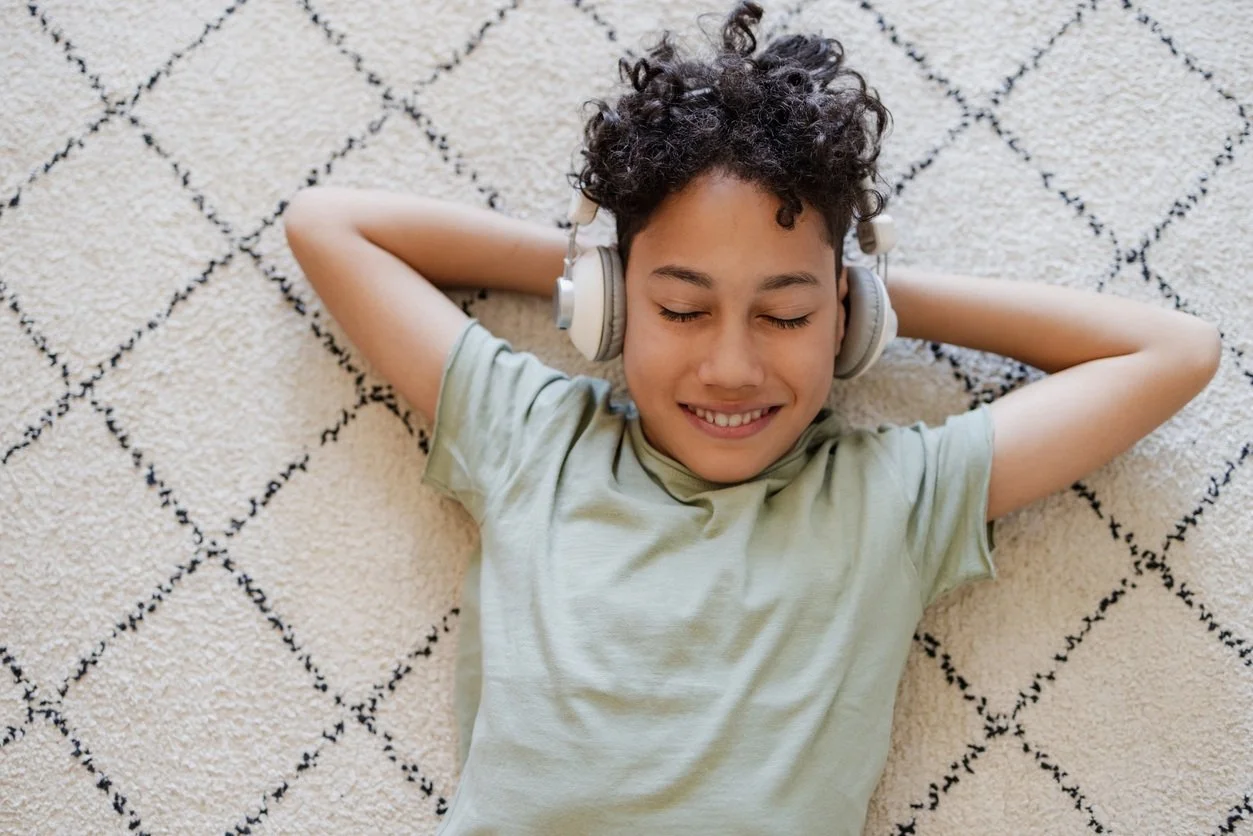At What Age Should a Child Get a Phone?
In today’s connected world, it’s nearly impossible to avoid the question: When should my child get their first phone? Whether it’s for safety, communication, or fitting in with peers, kids are asking for phones younger than ever—and parents are left to navigate a difficult balance between responsibility and readiness.
According to Common Sense Media, the average age a child receives their first smartphone is now 10 years old. But just because “everyone else has one” doesn’t mean it's the right time for every child. With concerns ranging from screen addiction and mental health to cyberbullying and online safety, determining the right age for phone ownership is more than just a milestone—it’s a major parenting decision.
So what do the experts say?
So, What’s the Best Age for a Child to Get a Phone?
Based on expert recommendations, the ideal age for a child to receive their first phone is around 13 to 14 years old—typically around middle school. This aligns with guidance from child psychologists, pediatricians, and digital safety experts who agree that this age range is when many kids begin to demonstrate the maturity, critical thinking, and social awareness needed to use a phone responsibly.
Dr. Jean Twenge, psychologist and author of iGen, notes that waiting until age 13 or later gives kids a stronger developmental foundation before exposing them to the pressures of social media and constant connectivity. The American Academy of Pediatrics doesn’t offer a one-size-fits-all age but emphasizes that readiness—not age alone—should guide the decision. Factors like emotional maturity, self-regulation, and parental involvement matter just as much as the child's grade level.
While some younger children may need a basic phone for emergencies or logistics, most experts agree that smartphones—with internet access, apps, and texting—should be introduced only when a child has demonstrated consistent responsibility and digital awareness.
Why It’s Important to Wait Before Giving Kids a Phone
While smartphones offer convenience and connection, giving a child one too early can come with unintended consequences. Here are five compelling reasons why waiting may be the smarter—and safer—choice.
1. Protects Mental Health and Reduces Anxiety
Numerous studies link early phone and social media use to increased anxiety, depression, and poor self-esteem in children. According to a 2023 report from the U.S. Surgeon General, excessive screen time and exposure to curated social media content are associated with rising mental health challenges in adolescents. Giving a child a phone too early can intensify these pressures before they’re emotionally equipped to handle them.
Younger kids may struggle to distinguish between reality and the idealized images they see online, leading to comparison and feelings of inadequacy. Delaying phone access gives them time to develop a strong sense of self-worth that isn’t dependent on likes, comments, or online validation. This foundation is critical for healthy emotional development during the pre-teen and teen years.
2. Encourages Face-to-Face Social Development
Children need time to build real-world communication and social skills. Early phone use can interfere with these important developmental stages. A study published in Child Development found that preteens who spent more time on screens had lower levels of emotional recognition and interpersonal empathy.
When children rely on texting or messaging apps to communicate, they miss out on learning how to read body language, tone, and social cues. These real-time interactions teach them how to navigate relationships, resolve conflict, and build empathy—all skills that are critical throughout life. Waiting to introduce a phone allows those interpersonal abilities to develop more fully.
3. Reduces Exposure to Online Risks
Cyberbullying, inappropriate content, and online predators are very real risks for younger children. The FBI has warned that kids as young as 8 are now targets of online exploitation. Delaying smartphone access reduces the chances of unsupervised exposure to apps, chats, and platforms that may be unsafe or difficult for a young child to navigate responsibly.
Even with parental controls, children can stumble into harmful content or connect with strangers on platforms like YouTube, TikTok, or multiplayer games. Waiting until your child is more aware of digital boundaries and consequences gives you time to educate them on online safety. It also gives you a chance to model safe, respectful digital behavior in the home.
4. Promotes Healthy Screen-Time Habits
Children who get phones early are more likely to become dependent on them for entertainment, distraction, or validation. Research from JAMA Pediatrics shows that screen dependency can negatively impact sleep, attention span, and academic performance. Introducing phones later gives families more time to establish boundaries and digital habits that support healthy use, rather than constant screen engagement.
Kids who grow up without an early attachment to a device are more likely to explore hobbies, play outside, and engage in creative, hands-on activities. They also tend to sleep better and focus more easily in school without the pull of apps and notifications. Setting these patterns early makes it easier to maintain balance once a phone is eventually introduced.
5. Helps Kids Build Real-Life Independence First
Before giving a child a smartphone, it’s important they first develop real-world independence—like navigating school schedules, making eye contact during conversations, or completing chores consistently. Phones can create a false sense of autonomy, when in reality, they often lead to more dependence on instant access to parents or social validation. Waiting gives kids time to practice responsibility in offline environments first.
Without a phone, children learn how to solve problems on their own—like asking an adult for help, memorizing phone numbers, or managing their time effectively. These everyday life skills build true confidence and self-reliance. By giving kids the space to mature without a digital safety net, they’re better prepared to use a phone as a tool—not a crutch—when the time comes.
When a Child Should Have a Phone: 5 Practical Reasons
While it’s important to be cautious about introducing smartphones too early, there are valid reasons some children may genuinely benefit from having a phone—especially in today’s fast-paced, busy world. In many cases, a basic phone (without internet access or apps) can offer peace of mind for both parents and kids.
Here are five key reasons a child might need a phone:
1. For Emergency Situations
One of the most compelling reasons to give a child a phone is to ensure they can call for help in an emergency. Whether they’re walking home from school, waiting for a ride, or at an after-school event, having a way to reach 911 or a trusted adult provides a critical layer of safety. A basic phone with emergency calling functionality can give parents peace of mind without overexposing children to digital distractions.
2. To Stay in Contact With Parents or Caregivers
As kids get older and more independent, having a way to check in with parents or caregivers becomes increasingly important. A phone allows for quick updates like “I got on the bus” or “Practice is over early,” reducing confusion or unnecessary worry. For families with shared custody or varying pickup schedules, a phone helps children stay connected to all caregivers.
3. Logistical Coordination for Activities
Between school events, sports, aftercare programs, and playdates, many kids have busy schedules. A phone can help with coordinating pickups, practice locations, or changes in timing. This is especially helpful if a child takes part in off-site activities without adult supervision—ensuring they always have a way to communicate changes or delays.
4. A Sense of Security for the Child
Sometimes, the phone isn’t just for the parent—it’s for the child’s emotional security. Knowing they can call or text a trusted adult if they’re feeling unsafe, unsure, or uncomfortable can help children navigate new environments with confidence. This is especially true for kids who are starting to walk home, take the bus, or stay home alone for short periods.
5. To Teach Responsibility in a Controlled Way
Giving a child a basic phone—without access to the internet or social media—can be a great opportunity to teach responsibility. They learn how to take care of a device, keep it charged, and use it appropriately. It also gives parents a chance to establish ground rules and expectations before transitioning to a smartphone later on.
Age-Based Recommendations: When Should Kids Get a Phone?
Many parents wonder whether their child’s age is the right time to introduce a phone—and the truth is, there’s no universal answer. Every child develops at a different pace, but age can be a helpful benchmark when making this decision. Below, we break down common age ranges—9 to 13—and what experts recommend when it comes to phone use at each stage. In many cases, a basic phone for emergencies may be appropriate, while smartphones are best introduced with caution and clear boundaries.
|
Age |
Should They Have a Phone? |
Recommended Type |
Key Considerations |
|
9–10 years |
❌ Not recommended |
Basic phone (call/text only) |
Too young for smartphone pressures; focus on safety and limited communication only. |
|
11 years |
⚠️ Basic phone only |
Dumb phone or watch-style phone |
Good for emergencies; still vulnerable to screen overuse and social media exposure. |
|
12 years |
✅ With caution |
Limited smartphone or basic phone |
May start to show responsibility; use strong parental controls and no social media. |
|
13 years |
✅ Possibly, with supervision |
Smartphone with restrictions |
Considered the minimum age for some platforms; monitor closely and limit distractions. |
Age-based recommendations for the most asked about ages:
Many parents wonder whether their child’s age is the right time to introduce a phone—and the truth is, there’s no universal answer. Every child develops at a different pace, but age can be a helpful benchmark when making this decision. Below, we break down common age ranges—9 to 13—and what experts recommend when it comes to phone use at each stage. In many cases, a basic phone for emergencies may be appropriate, while smartphones are best introduced with caution and clear boundaries.
Should a 9–10-Year-Old Have a Phone?
Recommendation: Not yet, or at most, a basic phone with call/text only for emergencies.
Children in this age range are still developing core emotional, social, and executive functioning skills. Giving them a smartphone—with access to the internet, apps, and social media—can expose them to pressures and risks they are not yet equipped to handle. From cyberbullying and screen addiction to inappropriate content, the dangers often outweigh the benefits at this age.
Instead, if your child frequently travels between caregivers, walks home from school, or participates in activities where communication is necessary, a basic phone with call and text capabilities may be appropriate. This keeps the focus on safety and connectivity without the added distractions of a smartphone. Waiting a few more years also helps prevent early dependence on screens and social validation.
Should an 11-Year-Old Have a Phone?
Recommendation: A basic phone only—smartphones should still be postponed.
By 11, children are gaining more independence, especially as they transition to middle school. While it's understandable that parents may want a way to stay in touch, a full smartphone is still not necessary—and often not appropriate—at this stage. Kids at this age are still highly impressionable and vulnerable to peer pressure, online content, and screen overuse.
A basic or “dumb phone” can provide peace of mind for parents while reinforcing healthy habits and digital boundaries. Without the distractions of apps or social platforms, kids can focus on building social skills, managing responsibilities, and enjoying screen-free play. Holding off on a smartphone also reduces the risk of anxiety and helps preserve mental health during a critical developmental period.
Should a 12-Year-Old Have a Phone?
Recommendation: Possibly a basic phone or very limited smartphone—with heavy parental controls.
At age 12, many children begin middle school or junior high, gaining greater independence in both academics and extracurriculars. This is the age when some experts begin to say phone ownership can be considered, depending on the individual child’s maturity and need. However, even at 12, full smartphone access should be approached with caution.
If a phone is necessary for communication or safety, a basic phone or a smartphone with strict parental controls and no access to social media may be a compromise. This allows for text and call functionality while minimizing the risk of distraction, inappropriate content, or screen addiction. Delaying access to unrestricted smartphones helps preserve sleep quality, face-to-face interaction, and emotional well-being
Should a 13-Year-Old Have a Phone?
Recommendation: Possibly—smartphone access may begin with limits and supervision.
By 13, many children begin to show signs of the responsibility and self-awareness needed to manage a smartphone. This age also marks the minimum age to legally join most social media platforms (like Instagram and TikTok), though that doesn’t mean they’re emotionally ready. If your child has shown maturity, follows rules, and understands the potential risks, a smartphone could be introduced gradually.
Parental involvement remains crucial—monitor usage, set screen time limits, and talk openly about digital citizenship and online safety. Even at this age, some parents may still prefer to start with a limited-use phone or child-focused device (like a Gabb phone or Pinwheel) to ease the transition. Remember, delaying full access to smartphones can still offer significant benefits to mental health, sleep, and social development.
Finding the Right Age and Approach
Deciding when your child should get a phone is a deeply personal choice that depends on their maturity, needs, and your family’s values. While many children start asking for phones at an early age, experts generally agree that waiting until around 12 to 14 years old is best—especially when it comes to smartphones. Younger children may benefit from a basic phone used strictly for emergencies and staying in touch, but full access to internet-connected devices should come only when they’re emotionally and socially prepared.
By delaying smartphone use and setting clear boundaries early, parents can protect their child’s mental health, encourage in-person social skills, and help them build healthy screen habits. At the same time, when safety, logistics, or family dynamics require it, a simple phone can be a helpful and responsible tool.
Ultimately, it’s not just about the age—it’s about readiness, trust, and guiding your child through the digital world with intention.
Related Blog posts
The Starglow Parenting Weekly
Your shortcut to purposeful parenting.
Join thousands of thoughtful parents who get our weekly roundup of tips on screen time, mindful discipline, and finding balance—delivered every Sunday morning.





